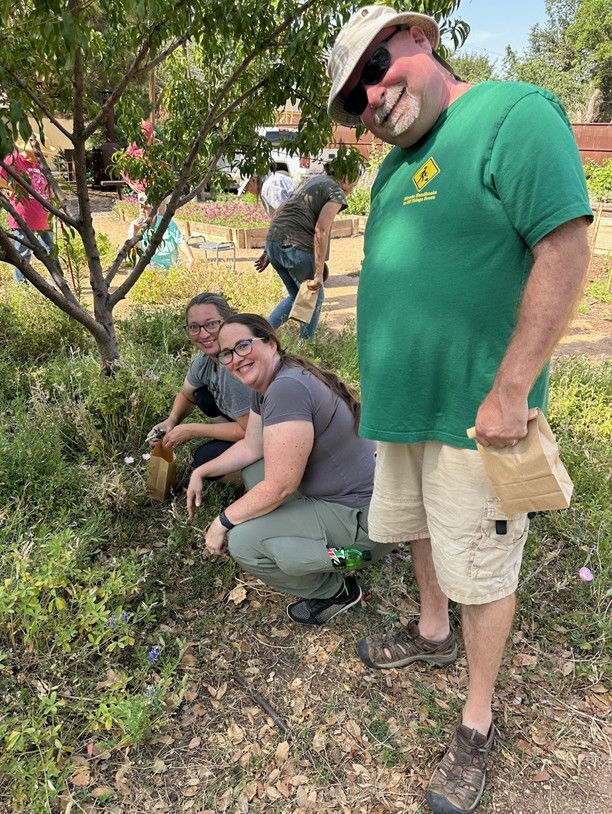Want to be a Master Gardener? Part 2
- PBMG

- Dec 7, 2022
- 2 min read

By Debbie Roland, Master Gardener
Last week’s article discussed why you may want to be a Master Gardener. Following is a little history and what you can actually expect during your training.
Started in 1978 the Extension Master Gardener program was established in Washington state. Every Master Gardener program is operated by a state land grant university or that university’s AgriLife Extension Service and equips their volunteers to serve as gardeners, educators and leaders. The local chapter, Permian Basin Master Gardeners which has members from Odessa and Midland as well as outlying areas, trains volunteers in aspects of gardening in an arid climate and operates under the Texas A&M AgriLife Extension Service. Our program is overseen by the Master Gardener Coordinator, Sara Duran, who is our local horticulture extension agent.
The local chapter of Master Gardeners requires 60 classroom hours of education and 60 volunteer hours the first year. You will need a dedication, willingness, and availability to take extensive training in horticulture. You will be required to show up for every class and take advantage of opportunities presented. Volunteer projects include working at the Food Bank, the Master Gardener booth at the Farmers Market, helping with the annual plant sale, Kids, Kows & More, as well as other projects the chapter participates in.
The classes begin January 14, 2023, and are held one day a week until the final class on April 29. Some of the classes will be held in Odessa, some and Midland and some will be online. All the classes and other projects you will be involved in not only teach you but prepare you to teach others. Some people are natural speakers and others “would rather be in the box than give the eulogy”. Don’t worry, if you have a fear of speaking in public, your talents can and will be used elsewhere.
Master Gardeners’ goal is to teach the community in the areas needed most. Some of the topics are tree care and biology, soil and composting, botany, turfgrass, landscape, vegetables and fruit, water and other relevant topics.
As a certified Master Gardener you will attend monthly meetings, committee meetings, accept volunteer assignments, keep a record of your education and volunteer hours on a provided system, all while representing AgriLife in a professional manner.
The requirements to maintain your certification are much easier. You will be required to have 30 volunteer hours and 12 continuing education hours annually. Your level of involvement and commitment is up to you.
Every Master Gardener is passionate about different aspects of the program. That is what makes it work. I may not be able to answer every question I am asked but I have other members, as well as Texas A&M AgriLife, to access to get an answer.
Contact Sara Moran at the Midland AgriLife office (432) 686-4700, or sara.moran-duran@ag.tamu.edu. You’ll be glad you did.
If you have questions, call the AgriLife office in Odessa at 498-4071 or in Midland at 686-4700.
Additional information, and our blog for access to past articles, is available at westtexasgardening.org. Click on “Resources”.
Classroom hours and volunteer hours invest in West Texas’ future

Find your possibilities in the Master Gardener program
.jpg)


Comments